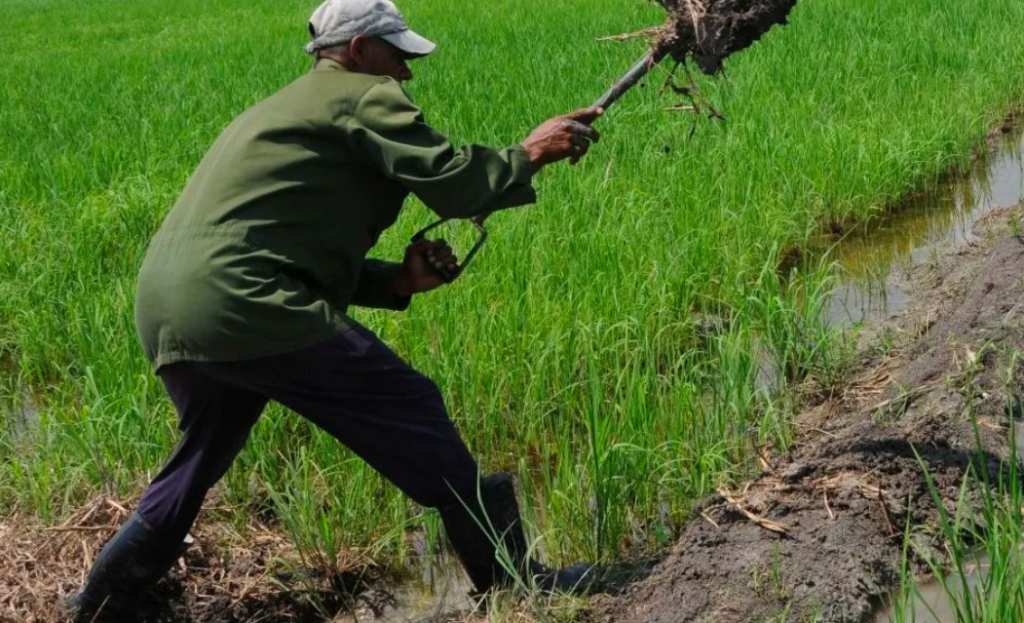
14ymedio, Mercedes García, Sancti Spíritus, 28 March 2024 — Since technical advisors from Vietnam left in frustration in 2022, the rice farmers of Sierpe, a town in Sancti Spíritus province, are increasingly feeling pressure from the state to increase production. They are not happy about having to turn over the bulk of their crops to ACOPIO, the state agricultural procurement and distribution agency, or about the low prices the state pays them. “We feel coerced. We have no way out because they only allow us to keep a small portion of what we harvest for our own consumption and we have to hand over the rest,” says Mariano, one of the producers.
To prevent farmers from selling the rice at provincial markets or “on the side,” local officials have strengthened security measures and are insisting farmers turn over the rice that was grown under Vienamese management.
“We all feel uncomfortable with the pressure, which ultimately isn’t helping because we’re still only paid a pittance”
“We all feel uncomfortable with the pressure, which ultimately isn’t helping because we’re still only paid a pittance. But what can we do? Most of us have spent our whole lives farming rice and our livelihoods depend on it,” Mariano complains.
In an interview published on Thursday in Escambray, Héctor Yoel Feitó, director of the Sur del Jíbaro cooperative in Sierpe, reports that rice cultivation is, so far, on track. He hopes to have a yield as high as 4.8 tons per hectare, a figure similar to what farmers were able to achieve with Vietnamese guidance. However, the article also indicates that the yield in 2023 amounted to only 1.8 tons per hectare.
“The cooperative has planted 458 hectares of grain. Lot #7, one of the most advanced, ha


